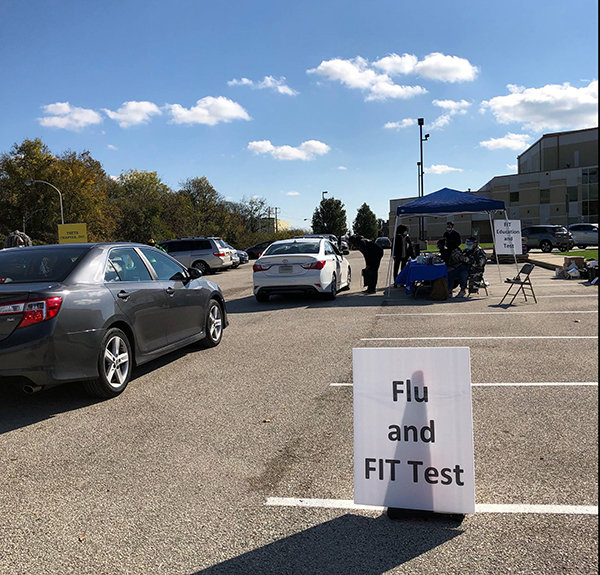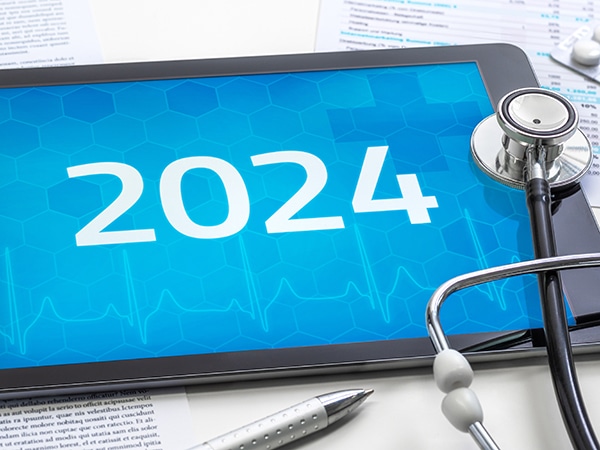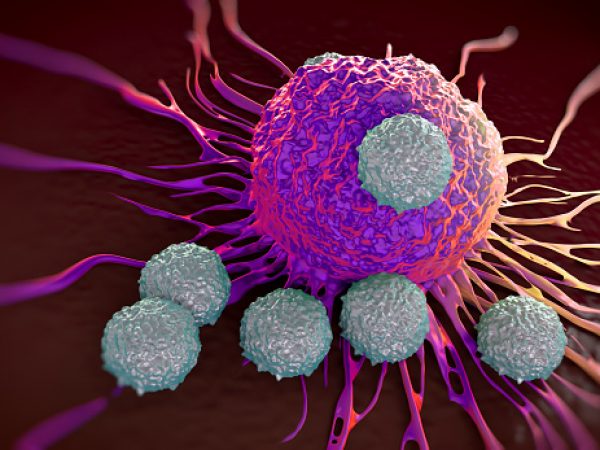Cancer Screening and Early Detection During the COVID-19 Pandemic
As infections from SARS-CoV-2 began to rapidly spread across the United States in early 2020, many nonessential medical procedures, including cancer screenings, were halted in an effort to prioritize the influx of COVID-19 patients and to help curb transmission. As a result, during March of last year, preventative screenings for breast, colon, and cervical cancer decreased by roughly 90 percent compared with historical rates, according to data gathered from electronic health records in the United States. In an editorial in Science, Norman “Ned” Sharpless, MD, FAACR, director of the National Cancer Institute (NCI), estimated that there will be nearly 10,000 excess deaths from breast and colorectal cancer in the next 10 years in the United States alone due to the effects on screening and treatment brought upon by the pandemic.
As COVID-19 continues to affect multiple facets of health care in 2021, what are the best ways to resume screening efforts to prevent future cancer deaths? This topic was the focus of a plenary session at the recent AACR Virtual Meeting: COVID-19 and Cancer, held Feb. 3-5. In this session, an international panel of speakers, including Mary Reid, PhD, MSPH, from Roswell Park Comprehensive Cancer Center in Buffalo, New York; Sabine Siesling, PhD, from the Netherlands Comprehensive Cancer Organization (IKNL) in Utrecht, Netherlands; Anita Lavery, MD, MRCP, from Queen’s University Belfast in Northern Ireland; Armenta Washington, MS, from the University of Pennsylvania in Philadelphia; and Katherine Crew, MD, MS, from Columbia University in New York, provided their unique perspective on how the pandemic has affected cancer screening around the world and pragmatic steps to safely resume such screenings.
The pandemic’s global toll on cancer screening
The COVID-19 pandemic has affected cancer screening practices around the globe, leading to a dramatic decline in cancer diagnoses in early 2020, both in the United States and around the world. In the Netherlands, for example, there were more than 2,000 fewer screen-detected breast cancer cases (and more than 200 fewer non-screen-detected breast cancer cases) between January and August of 2020 compared with average diagnoses during the same months of 2018 and 2019, said Siesling.
In Northern Ireland, esophago-gastric cancer diagnoses dropped by 26.6 percent between March and September of 2020 compared with average data from 2017-2019 from the same months, explained Lavery. Further, diagnoses of Barrett’s esophagus—a condition which can progress to esophageal carcinoma—dropped by 59.3 percent during this time frame, she said.
Reid pointed out that the pandemic has had a multilevel impact on cancer screening, as patients, health care practitioners, and health systems have all been affected: Patients received delayed care and experienced altered access to care. Health care practitioners had changing responsibilities as COVID-19 cases surged. And health systems faced a loss of patients, a loss of talent, and a loss of operations, which all equated to substantial revenue losses. Such disruptions have required creative solutions for cancer screenings during the COVID-19 era and beyond.
A creative approach to cancer screening during the pandemic
“The decline in screening along with the restrictions imposed by the pandemic have created a need for novel models for screening community members for colorectal cancer,” said Washington. To help mitigate reductions in screening rates among members of the Black community, who are disproportionately affected by colorectal cancer, Washington and colleagues implemented the NCI’s Screen to Save initiative by organizing a socially distanced drive-by Flu-FIT clinic, which administers flu vaccines and provides kits for fecal immunochemical tests (FITs) for at-home screening.
In this pilot study, which was detailed in an AACR press release, participants watched a seven-minute educational video about colorectal cancer screening posted on YouTube, completed a pre- and post-questionnaire, and received a flu shot and/or a FIT in the parking lot of Enon Tabernacle Baptist Church in Philadelphia. Completed FIT kits were returned to a medical collection box at the church.
Of the 192 eligible patients who received a FIT kit, 154 returned their kits, representing over 80 percent of participants. Among the returned FITs, 141 were negative, and the 13 positive tests were referred to colonoscopy.
“Novel programs such as this can help mitigate the significant decline in colorectal cancer screening that has occurred as a result of the COVID-19 pandemic and, thus, can help reduce the burden of colorectal cancer in diverse communities,” said Washington. She noted that a drive-by COVID-19 vaccine-FIT model has been planned for this spring.

Cancer screening strategies during the COVID-19 era and beyond
Several pragmatic steps should be taken as cancer screenings begin to resume, noted Crew, emphasizing the need for a broader implementation of remote testing (such as mailed FIT kits for colorectal cancer screening and at-home cervical cancer screening). Reid noted that at-home screenings have paid off during the pandemic, and said that colorectal cancer screening will remain remote for patients at her institution until facilities are open again.
Of course, at-home screening is not an option for several types of cancer, including breast cancer. Crew suggested implementing risk stratification tools to identify those at highest risk of disease, which could include applying deep learning to mammograms to better assess breast cancer risk, instead of using mammograms solely for the early detection of cancer.
Both Crew and Reid stressed the importance of targeting high-risk and vulnerable populations in cancer screening efforts. “In considering the impact of COVID on cancer screening, we know COVID itself does not uniformly impact the population,” Reid said. Rather, populations that have been disproportionately impacted by the pandemic have also been the most impacted in terms of cancer screening, she said.
It’s important to resume cancer screenings—and conversations about cancer screenings—now, “so that in the long run, we don’t lose all this ground that we’ve made in the past few years,” said Reid.
February is National Cancer Prevention Month. To learn more about cancer care and prevention during the COVID-19 era, read this commentary by the editor-in-chief of the AACR journal Cancer Prevention Research. Another recent commentary in this journal addresses the disparities in cancer prevention during the pandemic. For more information about what the AACR is doing to facilitate cancer prevention, click here.



